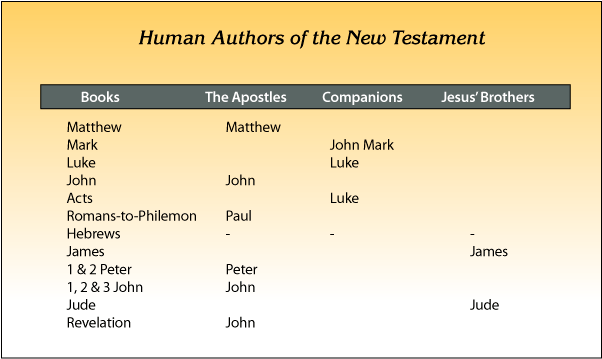
The first article Distorting Jesus, part 1 introduced us to the current trend and some of the authors involved in the distortion of the truth about Jesus. The distortion of Jesus is intentional and not accidental. It is the result of unbelieving hearts. Nevertheless, it is a continuation of a serious trend that is disturbing the faith of many and creating hindrances to the spread of the gospel. The apostle Paul had a similar experience and wrote in 2 Timothy 2:18,
. . . . men who have gone astray from the truth saying that the resurrection has already taken place, and they upset the faith of some. 2 Tim. 2:18 (NASB)
We discovered in the previous article that various authors and Bart Erhman, in particular, are not attempting to give a balanced perspective by presenting other viewpoints. They are seeking to propagate their own distorted perspective. They are entitled to do that in a free society. But from a scholarly viewpoint, they are intellectually dishonest. From a spiritual perspective, they are deceived and unbelieving. However, we should not be surprised since Jesus and the apostle Paul predicted that the good news about Jesus’ work on the cross would encounter hindrances as it spread throughout the world and eventually apostasy would come.

Because lawlessness is increased, most people’s love will grow cold. But the one who endures to the end, he will be saved. This gospel of the kingdom shall be preached in the whole world as a testimony to all the nations, and then the end will come. Matt. 24:12-14 (NASB)
Now we request you, brethren, with regard to the coming of our Lord Jesus Christ and our gathering together to Him, that you not be quickly shaken from your composure or be disturbed either by a spirit or a message or a letter as if from us, to the effect that the day of the Lord has come. Let no one in any way deceive you, for it will not come unless the apostasy comes first . . . 2 Thess. 2:1-3 (NASB)
Some day most of the world will reject Jesus Christ. The tidal wave of apostasy is already rushing upon the coastline of Jesus’ second coming. The tidal wave is gaining speed with each hour.
Yet we must not stand by idly allowing the distortion to occur without a response. We are also called to be salt and light (Matt. 5:13-14). The prophets and apostles spoke out against the sin and evil they saw. The scriptures reveal that the prophets such as Isaiah, Jeremiah, Ezekiel, Hosea, Micah, and warned the apostate Israelites that God was coming to judge them unless they repented and turned to God. They did not idly wait for God’s judgment to come. God gave them a message of warning to their neighbors. In Jesus’ message to the church of Thyatira in Revelation 2:18-29, He rebuked the church for not stopping false teaching and those who were following and supporting the false teacher Jezebel. The apostles did the same. Most of the New Testament books are rebukes against sin or attempts to correct false doctrine.
A Response
Some may call Bart Erhman a “Christian” but he says that he is not a Christian. He openly states that he is an agnostic[1] who writes about the Bible. Listen to his own words,
I had started seminary as a born-again fundamentalist; by the time I graduated I was moving toward a liberal form of evangelical Christianity, one that still saw the Bible as conveying important teachings of God to his people, but also as a book filled with human perspectives and mistakes. As time went on my views continued to evolve. I did not go from being an evangelical to an agnostic overnight. Quite the contrary: for some fifteen years after I had given up on my views of the verbal inspiration of the Bible, I continued to be a faithful Christian – a churchgoing, God-believing, sin-confessing Christian.[2]
I have received a number of pleas for help from those who want to know if what he claims is accurate. This two part series is in response, in part, to those pleas for help.
In the first article, we stated that a prolific author by the name of Bart Erhman is claiming 1) that the disciples were uneducated and illiterate and consequently could not have written any of the books in the New Testament and 2) the disciples were not eyewitnesses of Jesus – His ministry, miracles, death, resurrection or ascension. Consequently, the disciples could not have accurately reported what Jesus did. Bart Erhman concludes they created a fictitious Jesus. He claims that the books in the New Testament were written many decades or centuries after Jesus and His followers. His claims are not factual. He does not balance his view with opposing viewpoints. His distortions can readily be proven to be false.[3] In Distorting Jesus, part 2 we will explore one last more distortion – a third claim.
Third Claim – Bible Is Fiction
Bart Ehrman is stoking the embers of the slow simmering fire that claims the content of the Bible was in flux for centuries after Jesus as the various books were being written. Supposedly, the early church councils complied the core content of the Bible, choosing some books and discarding others. Eventually, the content of the Bible was determined in the A.D. 300-500 time frame. This is the focus of this article. Is he correct? What is the truth?
Determination of Scripture. In 2 Peter 3:14-16, the apostle Peter makes an important comment about the apostle Paul,
Therefore, beloved, since you look for these things, be diligent to be found by him in peace, spotless and blameless and regard the patience of our Lord is salvation, just as also our beloved brother Paul, according to the wisdom given him, wrote to us, as also in all of his letters speaking in them of these things, in which are some things hard to understand, which the untaught and unstable distort, as they do also the rest of the scriptures to their own destruction. 2 Peter 3:14-16 (NASB)
Peter’s comment reveals three important things to us. First, Peter says that Paul has written some things that are hard to understand. Have you ever come to the Bible and found it hard to understand at times? Peter says Paul wrote some things that were difficult to understand. Think about it for a second. An apostle had trouble understanding what another apostle wrote. This is an amazing truth. We should not be surprised if on occasions preachers and teachers disagree with one another. Some passages of scripture are difficult to understand. However, this should be the norm.
Peter’s second important statement occurs in verse 16 when he says that Paul wrote scripture. This reveals that Peter was evaluating what Paul was writing. His statement reveals that Peter did not just blindly read what Paul wrote. Peter was evaluating what Paul wrote to determine if he was writing scripture. This is a very important fact.
Thirdly, it is obvious that Peter has been reading Paul’s letters or writings. This would suggest that most likely the other apostles were reading Paul’s writings and the writings of the other apostles also. The writings of the New Testament authors were being circulated. Further proof can be found in 1 Timothy 5:18 where Paul writes,
For the Scripture says, ” YOU SHALL NOT MUZZLE THE OX WHILE HE IS THRESHING,” and ” The laborer is worthy of his wages.” 1 Tim. 5:18 (NASB)
Paul quotes several passages of scripture. The first passage Paul quotes can be found in Deuteronomy 25:4. But the second one cannot be found in the Old Testament. It is a direct quote from Luke 10:7. This reveals that Paul was evaluating who wrote scripture. 2 Peter 3:14-16 and 1 Timothy 5:18 give us a very important insight into the development of the New Testament. That is, the apostles were evaluating who was writing scripture and the content of the New Testament. The authors’ writings were not blindly accepted as scripture. Those who wrote were being evaluated by the other apostles.
In I Thessalonians 5:27, we find another remarkable statement,
I adjure you by the Lord to have this letter read to all of the brethren. I Thessalonians 5:27 (NASB)
Paul wrote this passage. What does he tell his readers to do with the letter that he sent to them? He asked them to distribute the letter. In Colossians 4:16 we read a similar statement,
When this letter is read among you, have it also read in the church of the Laodiceans. Colossians 4:16 (NASB)
Once again Paul directs that after they had read his letter, they were to pass it on to another church. And the request is repeated in Revelation 1:3 and in verse 11. In fact, the letter of Revelation was to be passed on to seven churches in Asia Minor.
Collectively, this reveals that the disciples were reading, evaluating and deciding the content of scripture. They also directed that the documents be circulated. The early church wasn’t clueless about what constituted scripture. They were not clueless because the disciples were involved in the process of determining what belonged in the New Testament.
Authors of the New Testament. The New Testament books were written by apostles, some of their companions and the brothers of Jesus. For example, Mark, who is known as John Mark, was a writer for Peter. Peter actually wrote the gospel of Mark through John Mark. John Mark was his scribe. Luke wrote the gospel of Luke, and he was a companion of Paul. Luke also wrote Acts. James and Jude were written by Jesus’ brothers, who earlier in Jesus’ ministry did not believe in Him (John 7:5). Between the apostles, their companions, and Jesus’ brothers, we have most of the New Testament.

There’s only one book in the New Testament whose author is uncertain. It is the book of Hebrews. Some people think the author is Paul. There are many opinions as to its authorship, but the best position on the subject is that we do not know. Except for one book, the New Testament was written by either an eye witness or a companion of an apostle. Together they determined which books belonged in the Bible, and they were eyewitnesses of Jesus. This is great news.
The Canon. How do we know the Bible contains the correct books? The answer is strongly suggested in an ancient document called the Muratorian Fragment which lists the accepted books of the New Testament. This document was written in approximately A. D. 150-170. The document was complied near the time of Jesus and the apostles and would reflect the books approved by the apostles. Here is a brief version of the Muratorian Fragment,
The third book of the Gospel: according to Luke . . . The fourth of the Gospels is by John, one of the disciples . . . The Acts of all the apostles have been written in one book. Addressing the most excellent Theophilus, Luke includes one by one the things which were done in his own presence, as he shows plainly by omitting the passion of Peter and also Paul’s departure when he was setting from the city for Spain. As for the letters of Paul . . . First of all [he wrote] to the Corinthians, . . . then to the Galatians [forbidding] circumcision; to the Romans he wrote at greater length about the order of the scriptures and also insisting that Christ was their primary theme. It is necessary for us to give an argued account of all these, since the blessed apostle Paul himself, following the order of his predecessor John, but not naming him, writes to seven churches in the following order: first to the Corinthians, second to the Ephesians, third to the Philippians, fourth to the Colossians, fifth to the Galatians, sixth to the Thessalonians, seventh to the Romans. But although [the message] is repeated to the Corinthians and Thessalonians by way of reproof . . . John also, while he writes to seven churches in the Apocalypse, yet speaks to all. Moreover, [Paul writes] one [letter] to Philemon, one to Titus, and two to Timothy in love and affection . . . But the letter of Jude and the superscribed with the name of John are accepted . . . The Apocalypse of John we also receive . . .[4]
The Muratorian Fragment does not mention all of the books of the New Testament. Matthew, Mark. Hebrews, James, 1 and 2 Peter and 3 John are missing from the list. Since the fragment starts with the statement, “The third book of the Gospel: according to Luke . . .” it is clearly implied that the author had already mentioned two other books. Most likely, the author had referred to Matthew as the first book and Mark as the second book. Since the document is torn and incomplete, it is called a fragment. Consequently, B. F. Westcott has concluded that the missing references to Matthew and Mark were on the lost or torn away fragment of the document.[5]
About A.D. 206 another document, the Barococcio codex, was written. It lists the entire New Testament except for the book of Revelation.[6] One of the early church fathers, Irenaeus (A.D. 170) quotes from almost all of the books of the New Testament. He never refers to Philemon, James, 2 Peter, or 3 John. Just because he did not quote from four of the books does not mean that they were not considered to be scripture. The significant truth is that he quoted from as many New Testament books as he did.
The Truth. It is apparent that Mr. Erhman and others lack scholastic integrity when they claim that the books of the New Testament were written centuries after Jesus and the disciples. It’s just not true. The ancient manuscripts argue otherwise. The truth is, the books of the New Testament were already known by the apostles and the early church before the close of the first century and in the early part of the second century. The apostle John, the last apostle, could have provided guidance until his death in A.D. 110-120. But Mr. Erhman and others do not tell their readers these facts because they want to discredit the Bible and cause folks to doubt their faith. Why? They don’t believe the Bible themselves. So, they reject it. Why would an agnostic study the Bible and write about it? They have a tremendous bias.
Conclusion
In my early thirties, I went through a time of doubt about the Bible. I wanted to know whether or not the Bible was real, whether Christianity was real. I wondered if the Bible and Christianity was just a joke or something more sinister? If I was going to spend the rest of my life committed to God as outlined in the Bible, I wanted to know if this book was true and not just accept it because my pastor said so. So, I went on a journey of my own and I explored the very issues that Bart Ehrman says people need to know. However, these facts have been known for decades and centuries. There are some very old and very new books that discuss these issues. Unfortunately, Bart Ehrman is distorting the truth – distorting Jesus. After I completed my examination of the scriptures, I came away with a tremendous conviction that the Bible is the Word of God. It is truth. There is every reason to believe the Bible is God’s Word.
Somebody always asks the question, “Did the early church councils determine the content of the Bible? The answer is, “No!” They were not trying to determine what books belonged in the Bible in the sense that is often communicated in the media and by writers such as Bart Erhman. The early church councils were trying to resolve questions and doubts about some of the books listed in the Muratorian Fragment, the Barococcio codex, or quoted by Irenaeus. In the end, the councils affirmed these books.
The Bible we hold in our hands was written by God and it is a book we can trust. It is important to remember that one can be very intelligent, possess many academic degrees and yet not be qualified to teach spiritual things. On one occasion during Jesus’ ministry, He rebuked the highly educated Pharisees with the following words,
And Jesus said, ” For judgment I came into this world, so that those who do not see may see, and that those who see may become blind.” Those of the Pharisees who were with Him heard these things and said to Him, ” We are not blind too, are we?” Jesus said to them, ” If you were blind, you would have no sin; but since you say, ‘ We see,’ your sin remains . . .” John 9:39-41 (NASB)
Jesus’ message to the Pharisees was simple. They thought they knew and understood the scriptures. They thought they were spiritually aware and informed, but they were spiritually blind and in the dark. Academic degrees and the accolades of a society does not mean one is qualified to teach or write about spiritual things when one is spiritually blind.
In conclusion, the Bible you hold in your hand is God’s inspired Word. He wrote it and it is a book you can trust. It is His Word.
PDF Download:
Distorting Jesus, part 2 (PDF)
References:
1. Bart Erhman, God’s Problem. HarperOne . 2008, p.4
2. Bart Erhman. Jesus, Interrupted. Harper One. 2009., p. 16.
3. Bock and Wallace. Dethroning Jesus. Thomas Nelson. 2007
4. F. F. Bruce. The Canon of Scripture. Inter Varsity press. 1988., pp. 159-161.
5. Norman Geisler, William Nix. A General Introduction to the Bible. Moody Press. 1973. p. 191.
6. Ibid., 193.